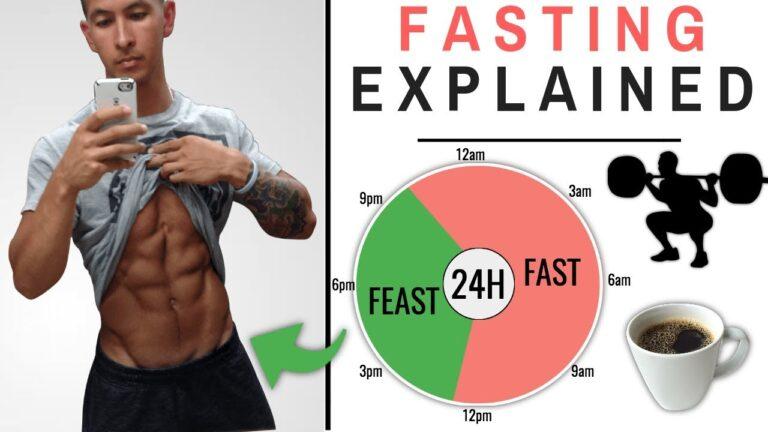Our Toxic Relationship With Plants
In part 1, we showed antioxidant supplements typically fail to offer the health benefits of plants and may even cause damage. If we can agree that plants are both high in antioxidants and helpful for you, then this seems like a bit of a paradox. If it’s not the antioxidants, then what makes plants healthy?
In the pursuit of survival, all types have actually developed protective mechanisms. The release of adrenaline associated with the fight or flight action lets loose a burst of energy and allows us to leave from or attack a predator. Flight is not an alternative, so plants safeguard themselves with tough outer shells, thorns, and contaminants referred to as phytochemicals. Animals have actually countered plants by developing to develop a tolerance to these potentially dangerous substances. It is now assumed that we are so well adjusted to these poisonous substances that we benefit from them.
Reactive metals like iron and copper must be hazardous. However, as early life forms progressed, they developed a tolerance to these metals. This enabled easy organisms to spread out into more diverse ecological specific niches. Over time, these metals ended up being integrated into proteins that are now vital to life. Iron is used in hemoglobin, which carries oxygen around the body. Copper is discovered in melanin, which colors our skin, and collagen, which is the raw product of our joints and cartilage.
Plant contaminants are thought to stimulate our body immune system and upregulate antioxidant production. Phytochemicals often release a bitter taste that you might discover in broccoli or red wine. A varied diet exposes us to low dosages of a range of hormetic stress factors from a broad spectrum of phytochemicals. The result of these phytochemicals is initially pro-oxidant, however overall oxidative stress is decreased due to our increased endogenous antioxidant production. Simply put, a stable exposure to low-dose toxins strengthens our defenses.
The work of Vittorio Calabrese, a respected hormesis scientist, suggests our cellular defenses are controlled by vitagenes. These genes encode for several protective proteins. Heat shock proteins assist safeguard cells from not just heat however numerous other stressors (hypoxia, cold) that can damage delicate protein structures. Sirtuin proteins are involved in oxidative stress defense, DNA repair, and autophagy. Vitagene activation has been shown to be neuroprotective, anti-inflammatory, protective of regular cells, and disruptive to cancer cells.
Different hormetic compounds have actually been the subject of countless research documents. Resveratrol (grapes, red white wine), curcumin (turmeric root), and sulforaphane (cruciferous vegetables) are a couple of examples. Resveratrol alone has appeared in over 20,000 research papers, but in spite of its ability to generate headings, it’s still prematurely to normally recommend using hormetic compounds in supplement type. Your safest bet is to consume these substances in their natural kind and not in a tablet.
For a very long time, we’ve attributed the virtues of consuming plants totally to antioxidants when in truth it might be the contaminants making us healthier. Regardless of which hypothesis explains the results, it is typically a good idea to consume a wide array of unprocessed fruits and especially vegetables. Coffee, red white wine, tea, and dark chocolate are also great sources of polyphenols.
The myth that we can change whole vegetables and fruits with antioxidant pills is busted.
No Pangs, No Gains
Fasting is another example of a hormetic stress factor. In our comfy modern-day lives, many of us seldom experience periods of food deprivation. Nutritionists and medical professionals often warn that an avoided meal can push the body into “hunger mode.” As dire as this warning sounds, Dr. Jason Fung writes in The Obesity Code that lots of people experience enhanced cognition and energy levels throughout a quickly. Fasting is also part of many religious and cultural customs. Fung notes, “Almost one-third of the population of the entire world is expected to regularly fast throughout their entire lives.” For the numerous faiths of the world, fasting is old-school medication for the ills of modern life.
During a period of fasting, your body switches fuel sources from primarily ingested food to kept glycogen and fat. Rather of being reliant on external sources of food, when we’ve entered ketosis, our body can access and utilize our internal fat supply. Reactive oxygen types (ROS) levels increase as a severe reaction to the tension brought on by the quick. Over time, as you switch from glucose burning to ketone burning, your body likewise begins the procedure of apoptosis, where old cells are killed and discarded and new ones thrive. Consider this addition by subtraction. Production of endogenous antioxidants is also upregulated by fasting.
In one fasting study, individuals consumed 25% and 175% of their typical caloric intake on alternate days. For half the research study (randomized crossover design), they likewise took oral vitamin C & & E supplements. The study authors discovered a minor reduction in markers of endogenous antioxidant production and a small boost in plasma insulin levels with antioxidant supplements. The antioxidant supplements had a negative however little impact on the benefits of fasting. Of note: The individuals in this study ate prodigious quantities of junk food. Moreover, individuals do not normally consume sufficient calories on feasting days to make up for the decrease of calories on fasting days. This study required participants to consume beyond satiety in order to maintain weight. Some caution is called for when analyzing the outcomes.
Rather than stoking overweight clients’ fears relating to the threats of avoiding breakfast, many enlightened doctors are now suggesting precisely that. Intermittent fasting is considered as a potent tool for weight reduction and metabolic health. There are various approaches of fasting, from time-restricted feeding, where you eat during an eight-hour window and quickly the remaining 16 hours, to multi-day fasts, where just low-calorie liquids are enabled. All approaches share the goal of resetting metabolic process by lowering total insulin. Numerous fasting approaches have actually been revealed to increase longevity in animal types without calorie restriction, however this result remains to be shown in humans. Other reported benefits of fasting include improved cognition, endurance performance, wound healing, and cardiovascular health.
Putting It All Together
Mark Mattson, Professor of Neuroscience at Johns Hopkins University, composes:
As a repercussion of the modern ‘lazy person’ lifestyle, signaling pathways that moderate advantageous impacts of environmental difficulties on health and illness resistance are disengaged, thus rendering individuals vulnerable to obesity, diabetes, cardiovascular disease, cancers and neurodegenerative disorders. Turnaround of the epidemic of illness caused by unchallenging lifestyles will need a society-wide effort to re-introduce intermittent fasting, workout and usage of plants containing hormetic phytochemicals into daily and weekly regimens.
Fasting and exercise have lots of overlapping benefits and systems. Exercise improves cognition by promoting the release of brain-derived neurotrophic aspect (BDNF), which builds brand-new neural connections. Metabolically, exercise improves insulin level of sensitivity and increases the number of mitochondria in skeletal muscle, the liver, and brain cells. Fasting is likewise understood to cause mitochondrial biogenesis. In spite of consuming energy or denying us of fasting, workout and energy make us more energetic over our lifetime by enhancing our metabolic health.
Workout and fasting both minimize readily available cellular energy. AMPK is a cellular energy sensor. Under conditions of low ATP, AMPK activates a variety of catabolic procedures: lipolysis, glycolysis, and autophagy. AMPK controls PGC-1a, which increases mitochondrial biogenesis. These actions increase schedule of ATP.Mattson uses
the term “anhormesis” to explain the contemporary way of life missing of hormetic stressors. We hardly ever feel pangs of appetite, the burning of lactic acid in our muscles, or the shock of cold exposure. Rather than keeping us safe from harm, this lifestyle is making us susceptible and weak.
Mattson concludes with a note to parents, recommending them to exercise, eat less meals, and consume healthier foods. Kids model their behaviors on what they see. The entire cycle will begin once again and another generation will struggle with persistent diseases that are preventable by challenging oneself periodically through diet plan, fasting, and workout.
It is ending up being significantly clear that complimentary radicals are not the devil they when were thought to be. They operate as signifying particles that trigger our body’s tension action systems. In function, unnaturally high dosages of antioxidants that exceed what one might obtain through diet alone successfully “shoot the messenger.” Antioxidant supplements can obstruct the adjustments that make us durable and strong. Rather than repair a bad diet with antioxidants, try to get back to nature. Eat real unprocessed foods. And train hard.
This content was initially published here.
, we revealed antioxidant supplements typically stop working to provide the health advantages of plants and may even trigger harm. Plant toxins are thought to stimulate our immune system and upregulate antioxidant production. For a long time, we’ve attributed the virtues of consuming plants totally to anti-oxidants when in truth it might be the toxins making us healthier. The research study authors found a small reduction in markers of endogenous antioxidant production and a minor increase in plasma insulin levels with antioxidant supplementation. The antioxidant supplements had a unfavorable but small impact on the advantages of fasting.




















